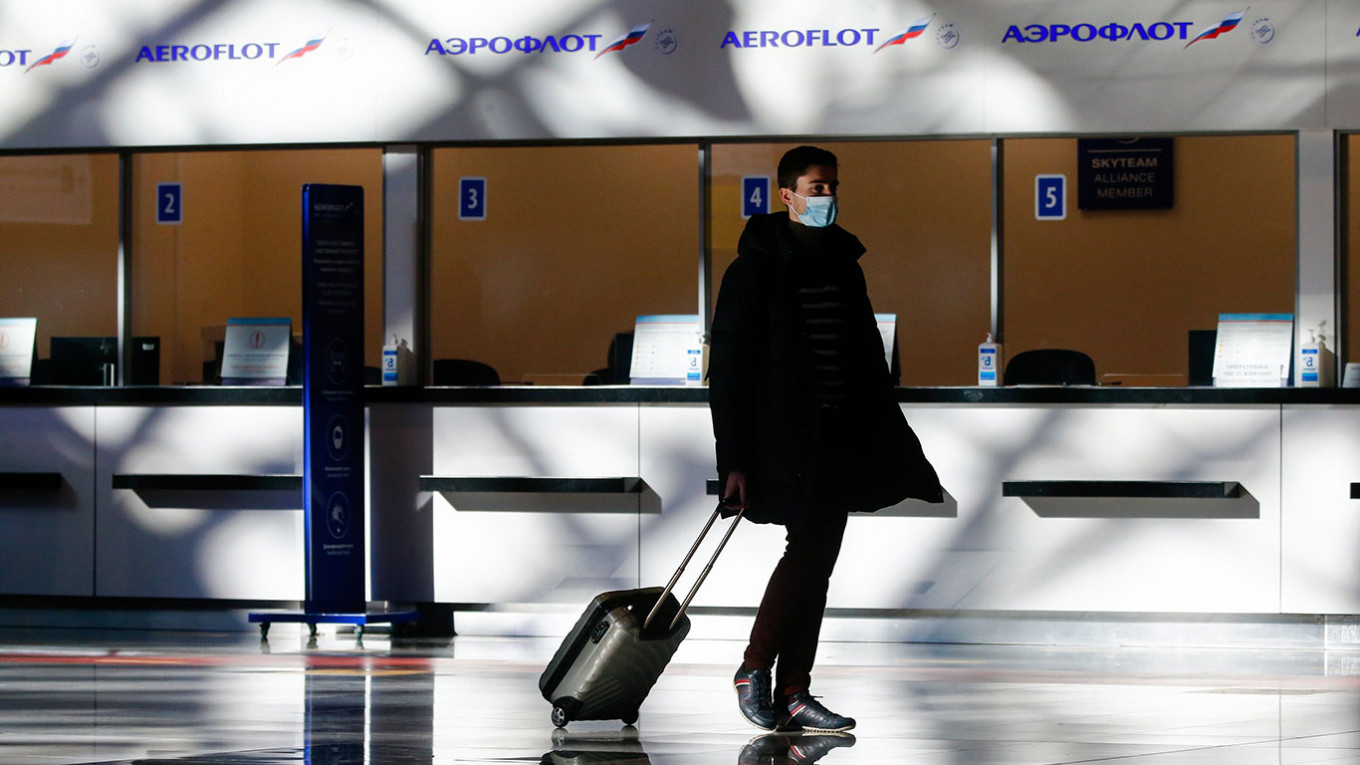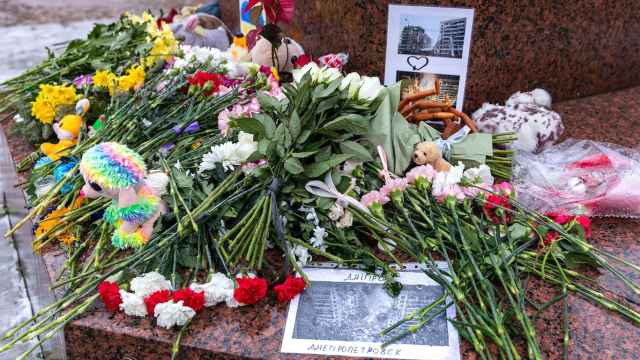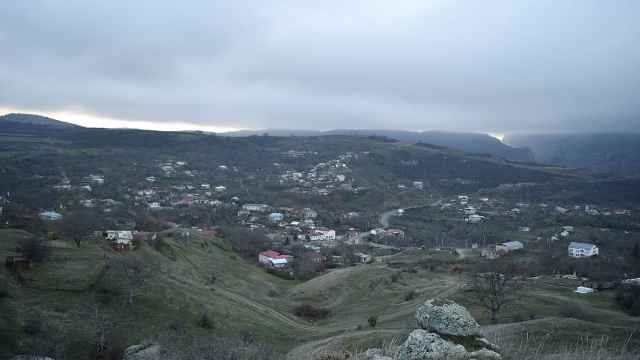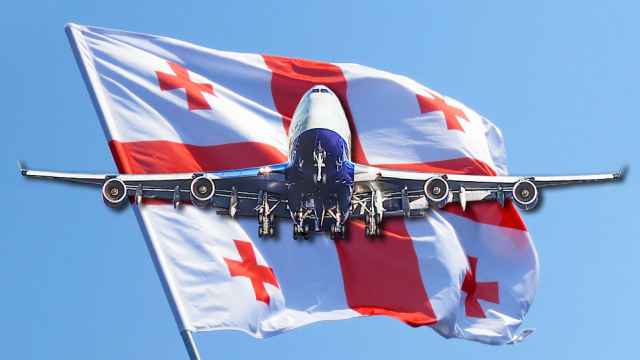Elizaveta and her partner were nervous about returning to Russia seven weeks after they fled to the capital of nearby Armenia at the start of the invasion of Ukraine.
“We didn’t have any trouble crossing the border,” Elizaveta, a PR specialist, told The Moscow Times. “But the border guards did ask my boyfriend what he had been doing in Yerevan for a month — they thought it was too long for sightseeing.”
Back in their Moscow apartment Wednesday, the couple were relieved and happy.
“I got home and collapsed onto my bed. And realized just how much I had missed my comfortable mattress and my pillows,” said Elizaveta, who requested anonymity to speak freely.
Almost two months after Russian President Vladimir Putin ordered a military assault on Ukraine, many of the Russians who fled in panic during the first days of the fighting are returning home. While some couldn’t do without creature comforts, others intend to gather documents and plan a more permanent emigration.
The original exodus last month was in part precipitated by rumors of martial law, border closures and a draft for conscription-aged men. But two months after the invasion, Russia’s borders remain open, and there has been no general mobilization.
Several hundred thousand Russians are estimated to have fled Russia last month, paying sky-high prices for plane tickets to destinations in Central Asia, the South Caucasus and Turkey. Many of these emigres were highly educated members of Russia’s small middle class who had access to the cash needed for a quick departure.
While Elizaveta enjoyed her time in Yerevan and said Armenians were very friendly, she missed the efficiency of the food delivery services in Russia, her favorite walks in Moscow, and her friends.
“I just feel sad for my country,” she said.
Some of those returning to Russia provoked online outrage earlier this week when an article in Moscow lifestyle media outlet The Village highlighted some of the trivial, even offensive, reasons people gave for wanting to return home to Russia’s capital.
“There is, of course, some charm in [Georgia’s capital] Tbilisi, but it is impossible to live the bohemian lifestyle which I am so used to,” one 24-year-old filmmaker from Moscow told The Village. He added he was surprised by a lack of turkey meat and fish in grocery stores, and said he missed health food retailer VkusVill.
Many of the centers of the new Russian emigration — Tbilisi, Yerevan, and the Kyrgyz capital Bishkek — were part of both the Soviet Union and the Russian Empire, and observers were quick to accuse such fair-weather emigres of a colonial mindset.
“The love of Moscow’s office drones for Georgia knows no bounds. However, it isn't mutual. This love is rooted in the Soviet past,” wrote Twitter user @thx1071.
Aside from a lack of turkey meat and fish, Russians who fled abroad have encountered significant problems trying to build a new life. Above all, Russian currency controls and sanctions by Western financial institutions caused widespread difficulties accessing money in accounts back home.
At the same time, Russian officials have issued repeated threats against those who left the country after the invasion. State Duma Speaker Vyacheslav Volodin said this week that he backed an idea to deprive “people acting like traitors” of their citizenship.
While going back is an option for some, for others — particularly those who are politically active — it carries significant risks. If they return, independent journalists and activists could fall foul of draconian wartime laws that mandate prison sentences of up to 15 years.
For some of those recently back in Russia, their return is only temporary.
Russian political scientists Olga and Nikolai decided to leave Uzbekistan only a month after they fled Moscow because of bureaucratic issues that required their presence in Russia, including gathering documents for Nikolai to take up a new job in Hungary.
“I felt two things after I returned [to Russia],” Nikolai told The Moscow Times. “The first one was an urge to get drunk. The second… a stark contrast between two realities. In Uzbekistan, people were calm and joyful. In Russia, everyone seemed grim, tense, angry. It felt that everyone was scared because of the things that were going on.
To apply for a visa for his new job, Nikolai needs to be in Moscow. Olga has enrolled in a degree at an Australian university, and she will likely be studying remotely.
“The best thing about being in Uzbekistan was that you could express yourself freely… and text everyone you wanted, including your Ukrainian relatives,” said Olga.
Elizaveta and her boyfriend are also considering emigrating for a second time.
“We need to sort out all the bureaucratic issues, find a tenant for our flat, and pack more things. We realized that it was impossible to do all this from Armenia,” said Elizaveta.
Decisions about emigration taken more slowly — and with less panic — are likely to be more permanent than many of those who left Russia in the first days of the war.
When Olga and Nikolai leave for Hungary, they are not planning to return to Russia a second time. “People sometimes ask me: ‘Who needs you abroad?’,” Olga said. “And I answer: ‘Who needs me here?’.”
A Message from The Moscow Times:
Dear readers,
We are facing unprecedented challenges. Russia's Prosecutor General's Office has designated The Moscow Times as an "undesirable" organization, criminalizing our work and putting our staff at risk of prosecution. This follows our earlier unjust labeling as a "foreign agent."
These actions are direct attempts to silence independent journalism in Russia. The authorities claim our work "discredits the decisions of the Russian leadership." We see things differently: we strive to provide accurate, unbiased reporting on Russia.
We, the journalists of The Moscow Times, refuse to be silenced. But to continue our work, we need your help.
Your support, no matter how small, makes a world of difference. If you can, please support us monthly starting from just $2. It's quick to set up, and every contribution makes a significant impact.
By supporting The Moscow Times, you're defending open, independent journalism in the face of repression. Thank you for standing with us.
Remind me later.







